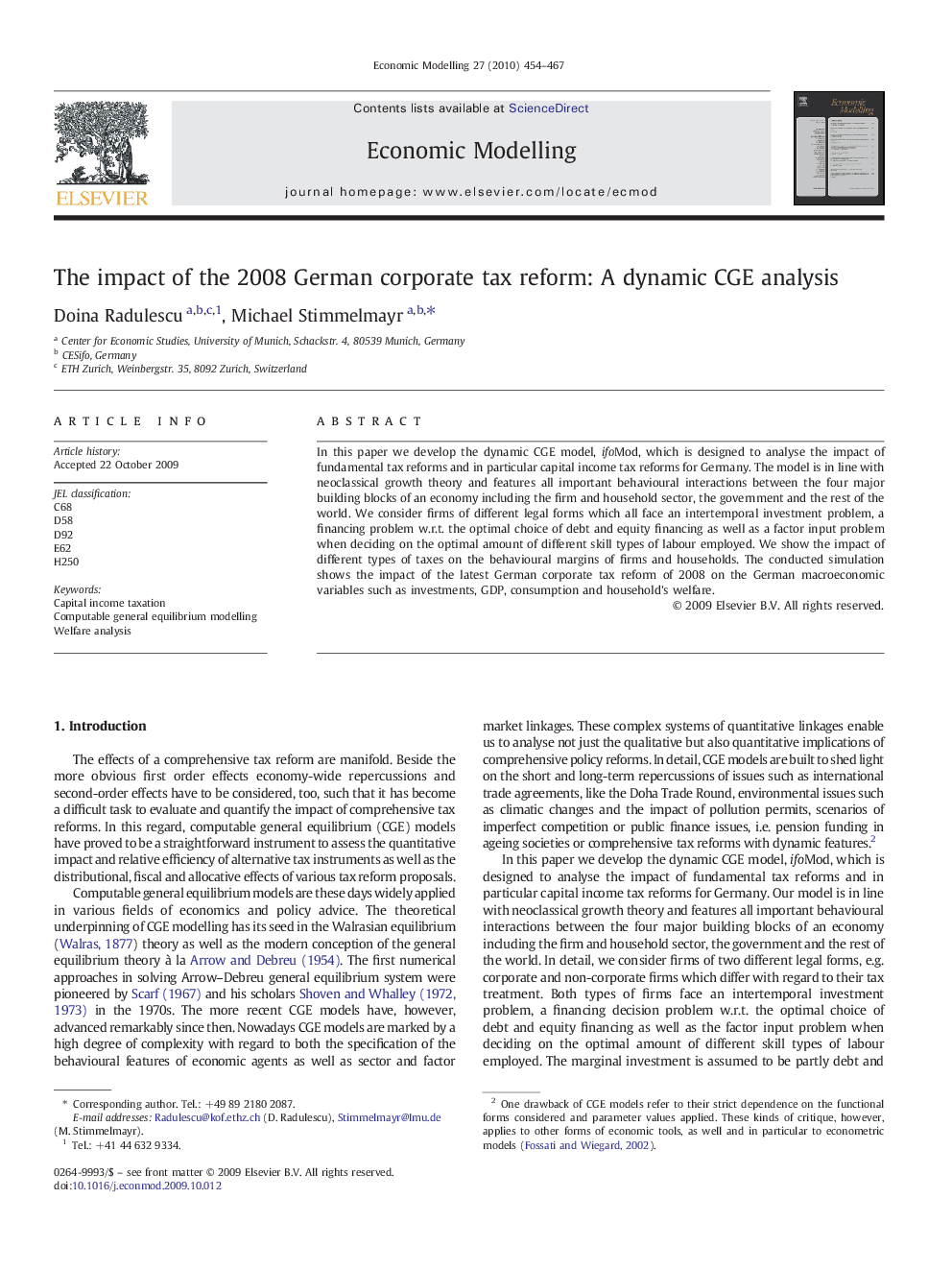| Article ID | Journal | Published Year | Pages | File Type |
|---|---|---|---|---|
| 5055915 | Economic Modelling | 2010 | 14 Pages |
Abstract
In this paper we develop the dynamic CGE model, ifoMod, which is designed to analyse the impact of fundamental tax reforms and in particular capital income tax reforms for Germany. The model is in line with neoclassical growth theory and features all important behavioural interactions between the four major building blocks of an economy including the firm and household sector, the government and the rest of the world. We consider firms of different legal forms which all face an intertemporal investment problem, a financing problem w.r.t. the optimal choice of debt and equity financing as well as a factor input problem when deciding on the optimal amount of different skill types of labour employed. We show the impact of different types of taxes on the behavioural margins of firms and households. The conducted simulation shows the impact of the latest German corporate tax reform of 2008 on the German macroeconomic variables such as investments, GDP, consumption and household's welfare.
Keywords
Related Topics
Social Sciences and Humanities
Economics, Econometrics and Finance
Economics and Econometrics
Authors
Doina Radulescu, Michael Stimmelmayr,
